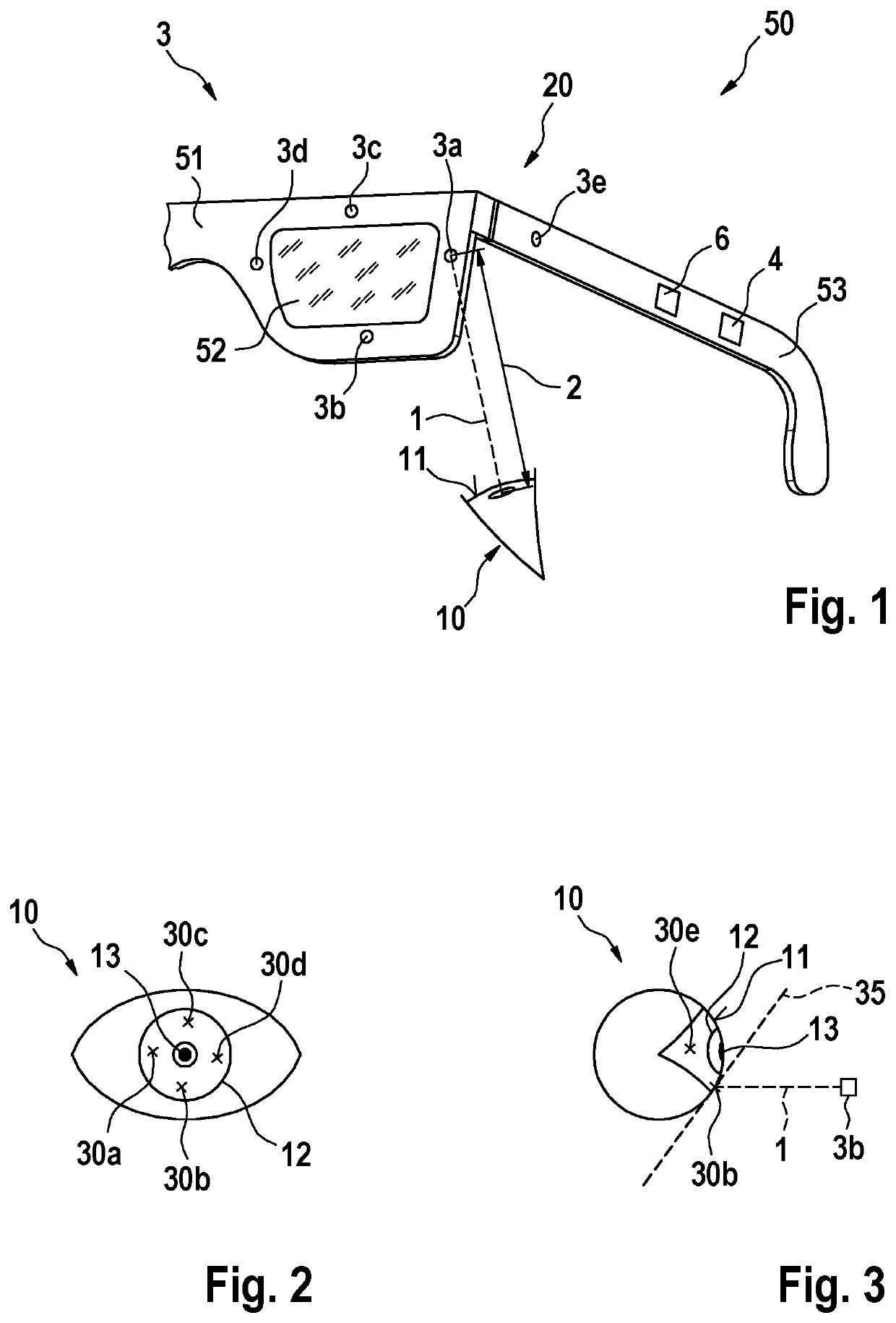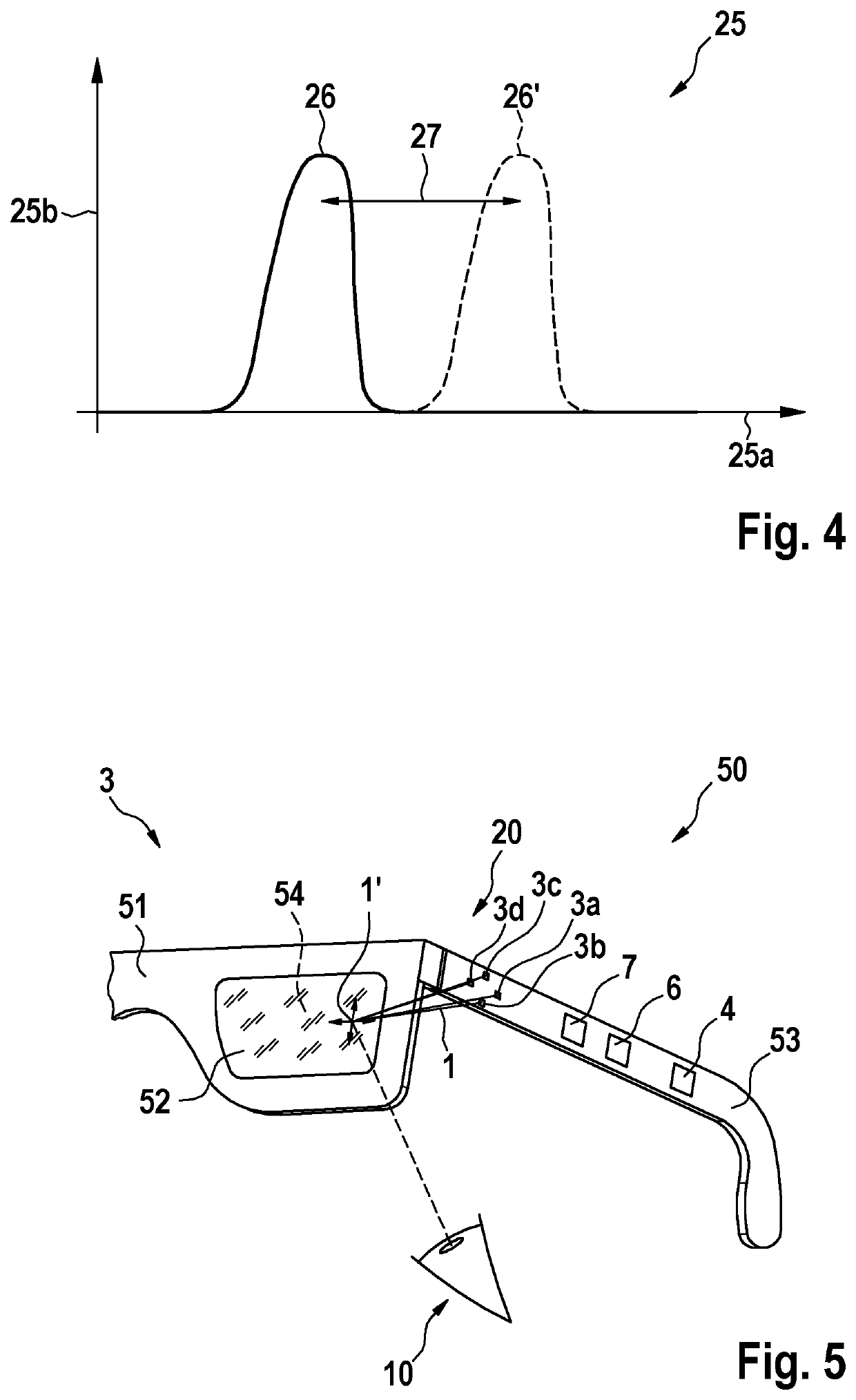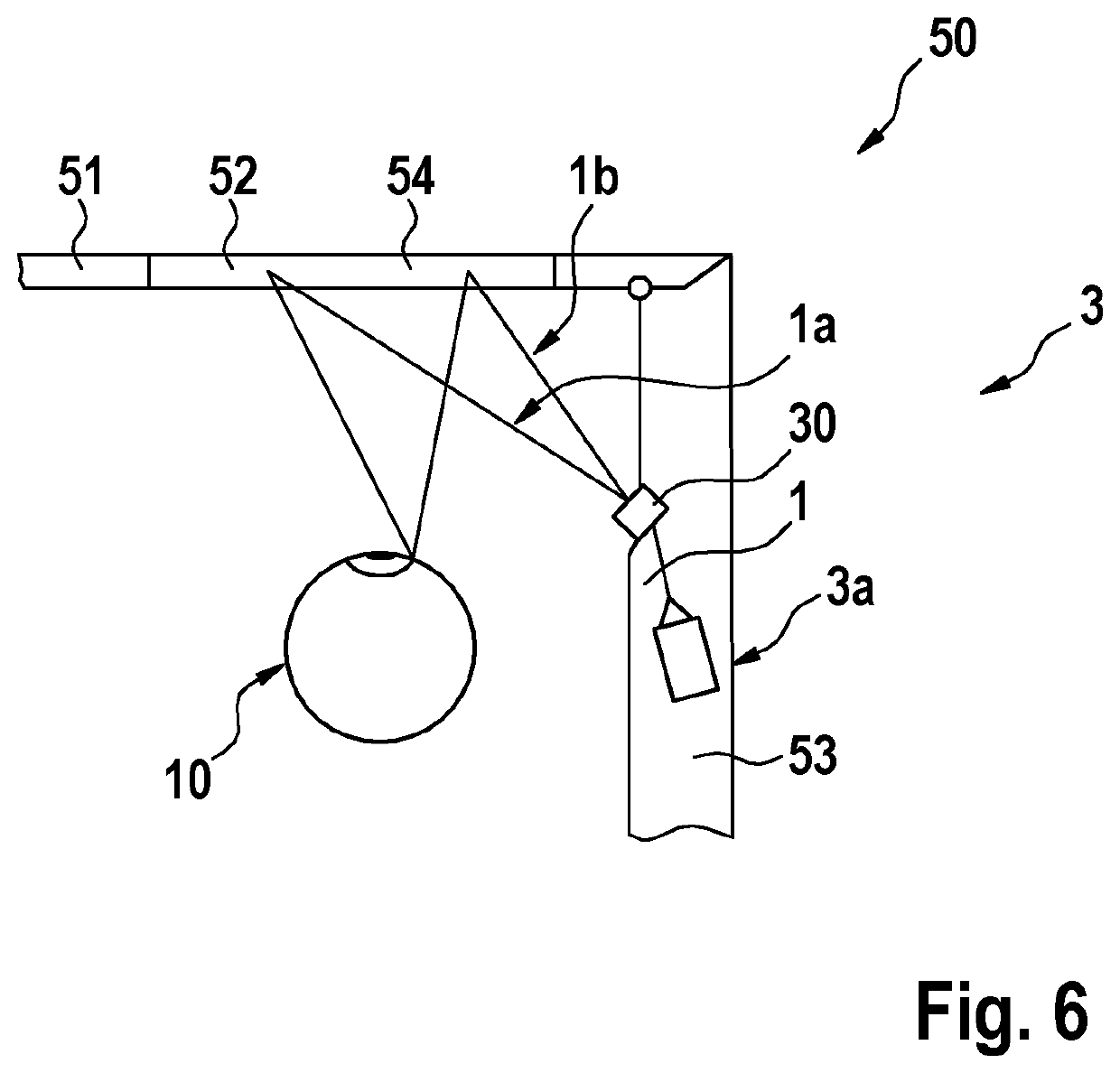Method for detecting a gaze direction of an eye
a technology of eye gaze and direction, applied in the field of eye gaze direction detection, can solve problems such as interference with incident laser radiation
- Summary
- Abstract
- Description
- Claims
- Application Information
AI Technical Summary
Benefits of technology
Problems solved by technology
Method used
Image
Examples
first embodiment
[0038]FIG. 1 shows a simplified schematic view of a pair of smart glasses 50 according to the invention. The smart glasses 50 comprise a spectacle lens 52, a spectacle frame 51 in which the spectacle lens 52 is received, and a spectacle temple 53 for holding the smart glasses 50 on a users head. The smart glasses 50 are thus configured to be worn on a users head.
[0039]The smart glasses 50 comprise a gaze detection arrangement 20, by which a gaze direction of an eye 10 of the user may be detected. For this purpose, the gaze detection arrangement 20 comprises a laser device 3 and a control device 4, which is configured to operate the laser device 4 to perform a respective method for detecting the gaze direction of the eye 10. The control device 4 is arranged in the spectacle temple 53 of the smart glasses 50 for compact design.
[0040]The laser device 3 includes a total of five surface emitters 3a, 3b, 3c, 3d, 3e as laser sources. Four of the five surface emitters 3a, 3b, 3c, 3d are dis...
second embodiment
[0052]Furthermore, the smart glasses 50 of FIG. 5 additionally comprise an input and / or output device 7 which is configured to output an output to the user. The input and / or output device 7 comprises a projection unit, which is configured to project an image onto a retina of the eye 10. The projection unit can be used, for example, to display an augmented reality or virtual reality. Preferably, the projection unit is coupled to the control device 4, wherein the control device 4 is configured to operate the projection unit in response to the detected gaze direction. For example, the projected image can be adapted depending on the gaze direction.
[0053]FIG. 6 shows a simplified schematic view of a pair of smart glasses 50 according to a third embodiment example of the invention. The third embodiment example essentially corresponds to the second embodiment example of FIG. 5 but having an alternative embodiment of the laser device 3.
[0054]In the third embodiment example, the laser device...
PUM
 Login to View More
Login to View More Abstract
Description
Claims
Application Information
 Login to View More
Login to View More - R&D
- Intellectual Property
- Life Sciences
- Materials
- Tech Scout
- Unparalleled Data Quality
- Higher Quality Content
- 60% Fewer Hallucinations
Browse by: Latest US Patents, China's latest patents, Technical Efficacy Thesaurus, Application Domain, Technology Topic, Popular Technical Reports.
© 2025 PatSnap. All rights reserved.Legal|Privacy policy|Modern Slavery Act Transparency Statement|Sitemap|About US| Contact US: help@patsnap.com



